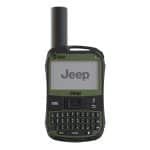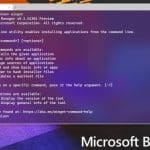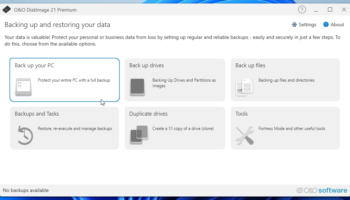3 reasons passwords need to die in 2020

The headlines still haunt me.
May 7, 2020 marked "World Password Day," the kitschy, but pertinent annual reminder to clean up the logins that control access to our modern lives. For days, titles like "Time to Prioritize Passwords" and "Tips for Managing Your Passwords" popped up in newsfeeds and tips from experts flooded in. "Vigilantly change your passwords" and "use a different password for each account" they said, as if new configurations of characters and symbols were cures rather than curbs to cyberattacks. The problem is passwords don’t protect us anymore. Gartner predicts that by 2022, 60 percent of large businesses and nearly all medium-sized companies will have cut their dependence on passwords by half. But with COVID-19 requiring many of us to work from home in insecure environments, 60 percent is not enough, and 2022 is too late.
SPOT X Jeep Edition 2-Way Satellite Messenger is surprisingly affordable

One of my favorite films is World War Z. It is a very flawed movie, but I still enjoy it. In the film, Brad Pitt's character utilizes a satellite phone, which I just find to be extremely interesting. I am sure such a thing is expensive -- particularly the service contract -- but how cool is it to be able to communicate without the need of cellular?
And so, today, a new product caught my eye -- the SPOT X Jeep Edition 2-Way Satellite Messenger. While not a phone, it can send and receive text messages via satellite, which is rather neat. I expected such a product to be very expensive, and carry a high monthly service cost, but actually, it is surprisingly affordable. Not to mention, it looks to be quite rugged, and the Jeep branding -- while gimmicky -- actually looks pretty cool.
More than 88 percent of organizations now use the cloud

A new report finds that more than 88 percent of organizations use cloud infrastructure in one form or another, and 45 percent expect to move three quarters or more of their applications to the cloud over the next twelve months.
The study from O'Reilly surveyed 1,283 software engineers, technical leads, and decision-makers from around the globe and finds that 21 percent of organizations are hosting all their applications in a cloud context.
Access to corporate networks for sale on the Dark Web

We've already seen that Dark Web marketplaces are seeking to cash in on the COVID-19 pandemic, but new research from Positive Technologies also shows a lot of interest in accessing corporate networks.
In the first quarter of this year the number of postings advertising access to these networks increased by 69 percent compared to the previous quarter. This is likely to pose a significant risk to corporate infrastructure, especially now that many employees are working remotely.
New cloud platform helps protect against business email compromise
Email compromise via spoofed domains or compromised accounts is a major problem. But a new cloud platform from Abnormal Security tracks the reputations of an organization's vendors and customers, and improves detection accuracy of advanced social engineering attacks.
VendorBase is a global database that gives organizations the ability to see detailed views of all vendors, including profile information, the VendorBase risk assessment score, explanations on risk scores, a timeline view of relevant email communication and security activity for that vendor.
Ancestry.com announces COVID-19 (coronavirus) testing

With the current pandemic continuing to grow in some areas, and unemployment rising even faster than food prices, we need problem solvers. Help at this time comes mostly from doctors and scientists, but can also come from other surprising areas.
If you've recently taken an AncestryDNA test, Ancestry.com is inviting you to supply some information that could assist in the fight against COVID-19.
Remote working doesn't help productivity

Although home workers have spent more hours in front of their computers than before the pandemic, the extra hours haven't translated into increased productivity according to a new study.
The report from digital experience management company Aternity looks at the extent to which remote employee productivity is affected by application performance. It also examines which applications work better in the home compared to the office.
Windows 10 is adding support for graphical apps to the Windows Subsystem for Linux

The Linux-supporting capabilities of Windows 10 are going to develop even further as Microsoft continues to improve Windows Subsystem for Linux (WSL). Later this month, with the release of Windows 10 May 2020 Update, Microsoft is launching WSL2 which sees the arrival of a full Linux kernel and more.
Talking at Build yesterday, Microsoft revealed the impending arrival of not only GPU hardware acceleration in WSL2, but also GUI app support.
Microsoft launches Linux-style Windows Package Manager Preview

Microsoft may be hosting its Build developer conference virtually this year, but this doesn't mean there's anything less than normal being unveiled. Among the announcement and launches is the first preview of the Windows Package Manager.
The open source tool has been created to make it easier to install software, automating and speeding up the process. If you've used a package manager in a Linux distro, the idea is very similar, and Microsoft acknowledge that it is something Windows devs have been asking for for some time.
Microsoft releases PowerToys v0.18.0 with new Run launcher and keyboard remapper

It's around a year since Microsoft decided to revive the popular PowerToys utilities for Windows 10, and in the intervening months there have been numerous updates and new tools to play with. With the newly release PowerToys v0.18.0 the company has added a handy keyboard remapping tool.
There's also something that will appeal to anyone who has been looking for a macOS-style Spotlight tool. The new Run launcher serves as a powerful upgrade to Windows + R and provides a flexible way to access apps, files and more.
Samsung T7 USB-C SSD is finally here

Back in January, we told you about the Samsung T7 USB-C SSD — a fast and svelte portable storage drive. There are two variants of the drive — a “T7 Touch” model which has a fingerprint reader for decryption, and a non-touch “T7” model that uses a password for the same thing.
While the touch model has been available for purchase for some time, Samsung promised the non-touch variant would hit stores in Q2 of 2020, meaning April, May, or June. Well, the T7 USB-C SSD is thankfully meeting that promised deadline, as it is available beginning today!
Microsoft releases Windows Terminal 1.0, download it now

At its Build developer conference last year, Microsoft took the wraps off its Linux-inspired Windows Terminal. This lets users access the Command Prompt, PowerShell, and WSL (Windows Subsystem for Linux) in the one place.
Since then, Microsoft has been adding additional features, such as multiple panes and tab re-ordering, across a number of preview versions. Most recently the software giant added mouse support and duplicate panes. Today, at the virtual Build 2020, the company announces that Terminal has hit the 1.0 milestone.
IoT: With great convenience comes even greater risk

IoT devices are skyrocketing in popularity -- almost everything can connect to the internet these days. You may have some of these in your home or business and not even realize it. Smart bulbs that sync with home management apps, IP camera systems, weather displays on smart refrigerators, smart thermostat -- basically all of the devices you would not expect to have an internet connection that do. This is highlighted further by the ongoing coronavirus pandemic now that the workforce is 100 percent remote and IT teams had to quickly enable remote work, all while ensuring security.
IoT devices make our lives a little easier and more convenient, but they come at a price as they provide new attack vectors for savvy cyber attackers. Gartner forecasts that there will be over 20.4 billion connected IoT devices in 2020, giving those attackers a lot of targets to choose from. On top of that, recent research indicated that IoT device hacks have increased by 300 percent, furthering the point that unprepared home network devices are easy targets for cybercriminals.
Majority of CEOs lose sleep over cybersecurity worries

Over 76 percent of CEOs are consistently losing sleep over the fear of becoming the next headline-grabbing security breach, yet less than half of them have a firm cybersecurity strategy in place.
A new study from cybersecurity company Forcepoint in partnership with WSJ Intelligence surveyed 200 senior executives from a range of industries to find the major cybersecurity stresses and areas of disconnect for business and security leaders.
Dark Web scams seek to cash in on COVID-19

With cybercriminals ever keen to exploit the latest trends to their advantage, it should come as no surprise that the latest research from Trustwave SpiderLabs shows a raft of Dark Web activity based around COVID-19.
Scams range from adverts for supposed vaccines to malicious infection maps. But there's also evidence that Dark Web activities are being hit by the pandemic in much the same way as legitimate businesses.
© 1998-2025 BetaNews, Inc. All Rights Reserved. Privacy Policy - Cookie Policy.




